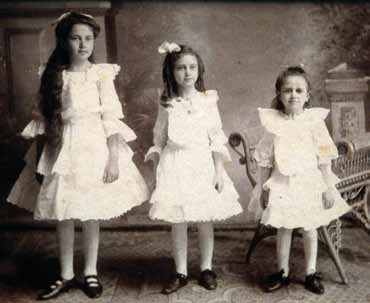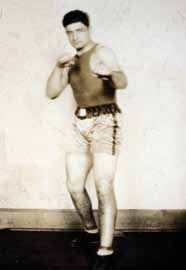Anderson History
The Jews of Anderson, South Carolina: Merchants and Manufacturers
 The first Jews to settle in Anderson, the Lessers, came from Prussia by way of New York and Georgia and were established in the town well before the Civil War. During the post-war occupation of South Carolina, Michael and Martha Lesser took an injured Union soldier, Oscar Geisberg, an observant Jew who hailed from Vienna, into their home, and in 1871, their daughter, Carrie, married him. It appears that, for Geisberg and the Lessers, a common religious background trumped regional alliances.
The first Jews to settle in Anderson, the Lessers, came from Prussia by way of New York and Georgia and were established in the town well before the Civil War. During the post-war occupation of South Carolina, Michael and Martha Lesser took an injured Union soldier, Oscar Geisberg, an observant Jew who hailed from Vienna, into their home, and in 1871, their daughter, Carrie, married him. It appears that, for Geisberg and the Lessers, a common religious background trumped regional alliances.
Reflecting the national pattern, Anderson’s Jews tended to be merchants of one sort or another. The Lessers ran a mercantile store on the main square and a number of their children and grandchildren followed them into the dry goods business. Dora Geisberg, Oscar and Carrie’s daughter, owned D. Geisberg’s Millinery, a ladies’ ready-to-wear shop. Her brother, Harry, operated a shoe store, while his wife, Sadie, offered ladies clothing at The Vogue Shop. Another Geisberg brother, Leo, sold general merchandise. Oscar reputedly tried his hand at storekeeping but was not successful. He was active in civic affairs in his adopted hometown, however, as an organizer of the YMCA and the Board of Trade. In 1878, there were some 17 Jewish residents in Anderson, most or all of whom were members of the Lesser and Geisberg families.
As the area’s economic base shi&ed from agriculture to a combination of farming and manufacturing, the face of the Jewish community changed. Among the influx of Eastern European immigrants in the first decade of the 20th century were the Fleishman and Siegel families. Sam Fleishman was one of nine brothers who fanned out across southern North Carolina and northern South Carolina and established as many as 15 general merchandise stores. He opened his Anderson store in 1906 and soon was joined by his 12-year-old nephew, Nathan, who, two decades later, would succeed him in the business, Fleishman’s “Outfitter from Head to Foot for Men, Women, and Children.”
 Max Siegel left Russia just after 1900 and settled in New York’s Lower East Side. Unhappy with the cold winters and the big city atmosphere, he boarded a train headed south in 1908. His money took him as far as Anderson where he peddled first and later established a livestock business, supplying meat to local markets and Clemson College.
Max Siegel left Russia just after 1900 and settled in New York’s Lower East Side. Unhappy with the cold winters and the big city atmosphere, he boarded a train headed south in 1908. His money took him as far as Anderson where he peddled first and later established a livestock business, supplying meat to local markets and Clemson College.
Max’s company thrived, enabling him not only to survive the Great Depression, but to provide assistance to the municipality. When the mayor and the city council approached him for help meeting the city’s payroll, he loaned them $50,000. He also was affluent enough to acquire the Anderson country club which, ironically, did not admit Jews. One year later he sold it to the city for the same price he paid, but when the city fathers offered him membership, he declined. Max’s son, Sam, recalled in a 1996 interview, “My father told them, ‘Nope, if the Jewish people can’t be a member, I don’t want to be a member.’”